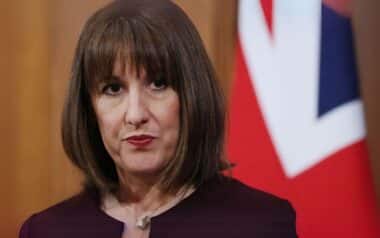A recent study by the Confederation of British Industry (CBI) revealed intentions for price increases and job losses as activity continues to stall, highlighting the growing issues facing private sector businesses throughout the United Kingdom. In light of this, Chancellor Rachel Reeves is facing mounting pressure to reevaluate her economic policies, which detractors claim are making things worse for companies.
The fact that economic activity has been stagnating since the middle of 2022 raises more general questions regarding the efficacy of Reeves’s policies and how they will affect the recovery of the British economy.
Declining Business Activity Sparks Urgent Warnings
The CBI‘s survey of 990 businesses presented a bleak picture, suggesting that after an already slow time, private sector activity is predicted to decline much more over the next three months. Many companies have had to review their budgets in light of growing expenses, such as the impending increase in national insurance contributions, as a result of this protracted stagnation.
A number of businesses have already started taking steps to alleviate financial strains, such as cutting employees, lowering investment plans, and raising prices. Daisy Cooper, the Treasury spokesman for the Liberal Democrats, called for reforms to the corporate rates system and a reversal of the “misguided jobs tax” and urged Reeves to act immediately. She went on to say that millions of people are struggling because the Labour chancellor’s budget did not address the cost-of-living crisis.
Further criticism has emerged from the farming sector, where concerns are growing over planned inheritance tax changes. Retailers, too, are feeling the pinch: the boss of Next warned that rising national insurance rates would hamper workforce expansion, while Sainsbury’s announced the loss of 3,000 jobs, citing an estimated £140 million in additional costs due to Reeves’s budget.
Labour’s Defence and Plans for Infrastructure Growth
In response to the criticism, Reeves has defended her budget as necessary to rebuild Britain’s infrastructure and address long-term economic challenges. She has argued that measures such as investment in infrastructure projects are essential for fostering growth, despite the immediate challenges they pose.
Reeves is set to outline her vision for planning reforms later this week, aiming to cut through red tape and accelerate infrastructure approvals. Key proposals include support for expanding Heathrow’s third runway and development at Gatwick and Luton airports. Speaking to the BBC, Reeves highlighted advancements in electric aviation and emphasised the potential benefits of reducing flight congestion in London.
While critics maintain that Reeves’s policies risk stifling growth, Labour MP Jeevun Sandher defended the government’s approach, noting the party inherited the worst domestic crisis in decades. He pointed to recent forecasts by the International Monetary Fund predicting the UK will become the fastest-growing major European economy by 2025.
Despite Reeves’s reassurances, business leaders remain sceptical, warning of continued challenges unless the government adjusts its approach to taxation and investment. With the Treasury insisting its policies are stabilising the economy, the pressure is on for Reeves to strike a balance between addressing immediate concerns and fostering long-term growth.









